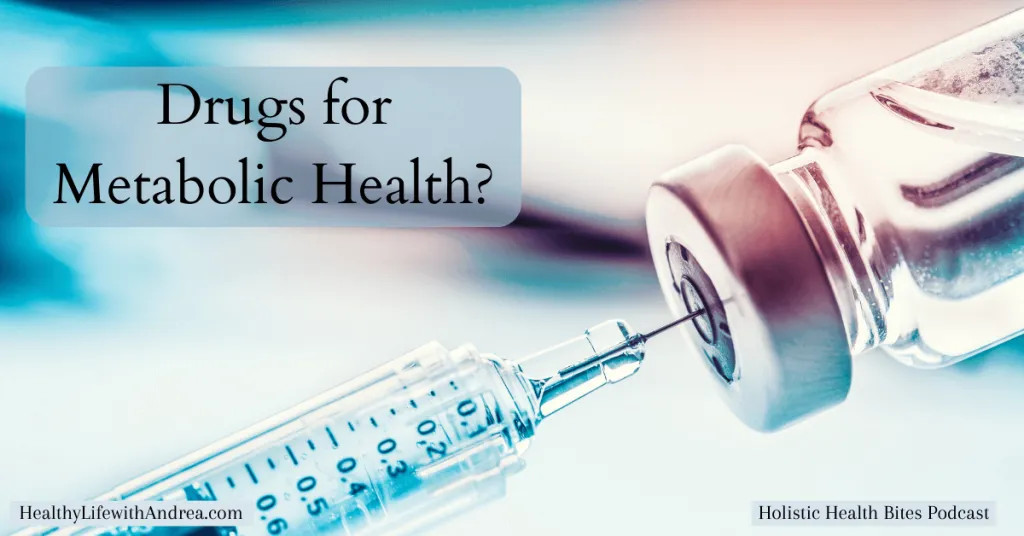
Is the ketogenic diet recommended or dangerous for kidney disease?
In this episode, I'm discussing the research and evidence around ketogenic diets and kidney health.
EPISODE DETAILS:
Dietary carbohydrate restriction is well established to be beneficial for reversing metabolic syndrome and other conditions related to insulin resistance, such as polycystic ovarian syndrome (PCOS) and nonalcoholic fatty liver disease (NAFLD). However, there are still some lingering myths about ketogenic diets that make people leery to try a low-carb, higher fat way of eating.
One of the myths that persists that keto is harmful for the kidneys, despite there being a lot of research showing the contrary. In fact, recent research shows not only is carbohydrate restriction not harmful for kidney function, but rather, it appears to be beneficial. Let’s break this down a bit further:
Diabetes and hypertension are the two biggest causes of chronic kidney disease (CKD) and kidney failure. According to the American Kidney Fund, diabetes is responsible for 47% of new cases of kidney failure and hypertension is responsible for 27% of new cases of kidney failure. So, taken together, type 2 diabetes and hypertension are responsible for nearly 75% of all cases of kidney failure.
Considering that carbohydrate restriction has been shown to help many people put type 2 diabetes into remission and improve or eliminate hypertension (including getting people off of blood pressure medication), ketogenic diets may support healthy kidney function by improving or completely reversing the two biggest causes of CKD.
At best, conventional treatment for CKD slows the disease progression. Kidney function continues to decline; it just declines more slowly. On the contrary, a very low-calorie ketogenic diet was shown to actually restore healthy kidney function in 27% of subjects with mild CKD, as published in a study in Nutrients. The study diet, while different from the traditional ketogenic diet, consisted of a short duration, very low calorie, low carbohydrate foods. They found patients on this plan for 3 months lost a mean of 20% of their body weight, blood pressure decreased, lipids and blood glucose also significantly improved, with no safety risks arising. Liver enzymes improved, triglycerides profoundly decreased, uric acid significantly decreased.
Fortunately, kidney function has been studied in subjects following more “real world” approaches to low-carb and keto, and ad lib low-carb diets show a beneficial effect on the kidneys. The DIRECT trial, published in the journal Diabetes Care, compared three diets - a low-fat calorie restriction diet, a Mediterranean diet with calorie restriction, and a low-carb diet with no calorie restriction. The low carb diet was shown to have the biggest beneficial effect on kidney function, though all three diets were beneficial.
Keto diets show benefit even for kidney disease driven primarily by genetic mutations. In a study of keto for autosomal-dominant polycystic kidney disease – the most common genetic cause of kidney failure –keto showed improved kidney function while subjects following their usual diet or doing periodic fasting (fasting three days per month) continued to experience a decline in kidney function.
“Altogether, the available clinical studies and experience to date suggest that KMT [ketogenic metabolic therapy] is feasible in patients with CKD and does not harm the kidneys but rather has beneficial effects including CKD remission.”
Despite the evidence supporting the use of keto diets in patients with kidney disease, there may still be lingering questions about protein intake. It’s important to note that traditional keto is not a high-protein diet. The fundamental principle of a ketogenic diet is maintaining a very low carbohydrate intake. But even among individuals who consume higher protein diets, there’s no evidence that high-protein diets increase risk for CKD.
What matters more is keeping the kidneys healthy is managing blood sugar and blood pressure. If high protein intakes don’t cause kidney disease, what about people who already have CKD? This is where recommendations get a bit shaky. Currently, the recommendations are to limit protein intake, but there is a growing call to amend those recommendations because protein has repeatedly been found to have little effect on disease progression.
On the other hand, carbohydrate restriction has been shown to be beneficial for slowing disease progression or improving CKD even when protein intake is generous. In a study of people with type 2 diabetes and diabetic nephropathy, a low-carb diet with 25-30% of calories from protein – significantly higher than the typical recommendation for individuals with compromised kidney function – was more effective for slowing disease progression and reducing deaths compared to a low-protein, high-carb diet. Higher protein approaches have been employed in several other studies looking at low-carb or ketogenic diets for CKD and benefits were still observed, even if the protein sources were predominantly animal foods rather than plant foods.
The BMJ Open Diabetes Research & Care concluded:
“There is a considerable body of research suggesting that a very low carbohydrate ketogenic diet is safe in individuals with moderately diminished kidney function, even in studies that had higher protein intake than what is recommended for kidney disease and diets that are not plant-based. The diet can be safely prescribed in patients with T2D for treating and remitting diabetes even if they have underlying stage 2 or 3 CKD or reduced kidney function.” (Athinarayanan et al., 2024)
Ketogenic diets have been found to be beneficial in reducing a wide range of disease dynamics with multiple different approaches to the ketogenic diet. As I’ve stated before when discussing the ketogenic diet, the major distinction here is these benefits come from a well-formulated ketogenic diet, not a ‘keto treats’ or pink drinks fad keto. Don’t just run out and start buying products labeled keto-friendly. An ultraprocessed food diet, even when ‘keto-friendly’ is not going to improve your health. Eat real food that contains fewer carbohydrates.





















0 Comments